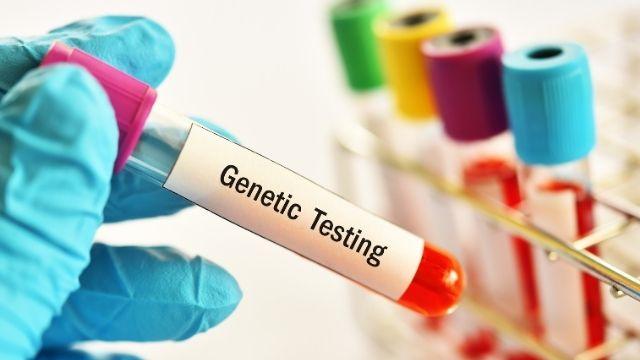World Athletics has announced a groundbreaking policy implementing gene testing to determine eligibility for female categories in athletics competitions. The new measure aims to establish clearer criteria around testosterone levels and genetic factors, sparking widespread debate about fairness and inclusion in women’s sports. This development marks a significant shift in the governance of athletic competition, as the international body seeks to balance scientific assessment with athletes’ rights. The Dhaka Tribune reports on the implications of this policy and its reception within the global athletics community.
World Athletics Implements Gene Testing to Define Female Category Eligibility
World Athletics has taken a groundbreaking step by introducing gene testing as part of its eligibility criteria for female athletes competing in international events. This initiative aims to ensure fairness in competition by scientifically defining eligibility beyond traditional sex verification methods. The policy rollout includes detailed genetic screening to identify differences in sex development (DSD), marking a shift towards precision-based assessments. Officials believe this move will close loopholes and maintain the integrity of women’s sports while respecting the dignity of all competitors.
Key features of the new eligibility protocol include:
- Genetic markers assessment to evaluate hormone levels and chromosomal variations
- Collaboration with medical and scientific experts to establish fair threshold standards
- Confidential handling of athlete data to protect privacy
- Provision for appeal and review processes for affected athletes
| Criteria | Assessment | Purpose |
|---|---|---|
| Chromosomal Analysis | XX, XY, and DSD variants | Confirm biological sex markers |
| Testosterone Level | Blood concentration in nmol/L | Determine hormone impact on performance |
| Physical Evaluation | Secondary sexual characteristics | Support genetic findings |
Implications of Genetic Screening on Athlete Participation and Fair Competition
The introduction of genetic testing to determine eligibility in female athletic categories marks a significant shift in the governance of sports competition. This move aims to establish more precise criteria based on biological markers rather than relying solely on traditional gender verification methods. However, it raises crucial questions about privacy, the scope of genetic data use, and the potential psychological impact on athletes undergoing such invasive screening processes. Sports federations must balance scientific advances with ethical considerations to maintain trust and fairness.
Key implications of this policy include:
- Redefining Fairness: Genetic traits may influence performance, but diversity in genetic makeup challenges rigid classification.
- Privacy Concerns: Athlete genetic information is sensitive, requiring stringent protocols to prevent misuse or breaches.
- Participation Barriers: Athletes with variations in sex development might face exclusion, sparking debates over inclusivity and discrimination.
- Legal and Ethical Challenges: Policies may be contested in courts and human rights forums for perceived inequalities.
| Aspect | Potential Impact |
|---|---|
| Athlete Eligibility | Stricter due to genetic data thresholds |
| Competition Integrity | Aimed for increased fairness, yet controversial |
| Athlete Support | Need for counseling and legal guidance |
Summary
Context:
To improve the accuracy of eligibility criteria for female athletes, sports authorities are considering genetic testing that focuses on biological markers instead of traditional gender verification. This approach intends to ensure fairness but introduces new challenges.
Key Implications:
- Redefining Fairness: Genetic diversity challenges simple classification; performance-influencing traits vary widely even within categories.
- Privacy Concerns: Genetic data is highly sensitive, necessitating strict protection measures.
- Participation Barriers: Athletes with natural genetic variations, such as intersex individuals, may face exclusion risks.
- Legal and Ethical Challenges: The policies could prompt legal disputes and human rights debates.
Table Summary of Potential Impacts:
| Aspect | Potential Impact |
|———————-|—————————————–|
| Athlete Eligibility | Stricter thresholds based on genetics |
| Competition Integrity| Aimed at fairness but remains controversial |
| Athlete Support | Increased need for counseling and legal aid |
Analysis and Considerations
- Scientific Nuance: Genetic markers alone may not definitively predict competitive advantage or gender identity, raising questions about the scientific basis of policies.
- Ethical Responsibility: The welfare of athletes should guide implementation, respecting privacy, bodily autonomy, and psychological well-being.
- Legal Framework: Transparency and non-discrimination principles must underpin policies to mitigate legal risks.
- Support Systems: Comprehensive support structures (medical, psychological, legal) are crucial for affected athletes.
If you want, I can help you draft a policy brief, ethical guidelines, or communication materials regarding this topic. Let me know!
Ethical and Privacy Concerns Surrounding Genetic Testing in Sports
The recent decision by World Athletics to incorporate gene testing as a criterion for female category eligibility has sparked intense debate over its ethical implications. Critics argue that subjecting athletes to genetic scrutiny risks infringing on personal privacy and may lead to discrimination based on genetic traits rather than athletic performance. There is growing concern that such policies could stigmatize athletes, reducing their complex identities to a series of biological markers. Questions about consent, data security, and the potential misuse of genetic information continue to fuel unease among stakeholders in the sporting community.
Moreover, the practical challenges of implementing these tests raise significant issues. Genetic data can reveal sensitive health information unrelated to eligibility, potentially exposing athletes to unintended consequences. Privacy advocates emphasize the need for rigorous safeguards, including:
- Clear protocols for data handling and storage
- Strict limitations on who can access genetic results
- Comprehensive informed consent processes
- Transparency in how testing influences athlete eligibility decisions
| Key Concern | Potential Impact |
|---|---|
| Privacy Invasion | Unauthorized access to genetic info |
| Discrimination | Exclusion based on genetic traits |
| Consent Issues | Pressure to comply without full understanding |
| Data Misuse | Genetic data used for unrelated purposes |
Recommendations for Transparent Policies and Support Systems in Athletic Governance
To foster trust and fairness in athletic governance, organizations must adopt clear and transparent policies revolving around gender eligibility assessments. These should be publicly accessible and regularly updated documents outlining the rationale, scientific basis, and procedural steps involved in gene testing protocols. Additionally, athlete consent, privacy, and the right to appeal must be explicitly addressed, ensuring participants feel respected and protected throughout the evaluation process. Transparency not only upholds the integrity of the sport but also mitigates misinformation and stigma associated with biological testing in female categories.
Alongside transparent policy frameworks, robust support systems are essential to help affected athletes navigate complex eligibility criteria. Such systems could include:
- Dedicated counseling services to address psychological and emotional impacts.
- Clear communication channels for queries and appeals.
- Confidential medical support to manage sensitive information with discretion.
Implementing these measures creates a balanced environment prioritizing achievement and dignity, while reinforcing the global mission of fairness in competition.
| Policy Element | Key Considerations |
|---|---|
| Transparency | Public documentation, clear rationale, ongoing updates |
| Consent Protocol | Informed agreement, right to withdraw, appeal opportunities |
| Support Services | Counseling, confidentiality, communication |
Concluding Remarks
As World Athletics moves forward with the introduction of gene testing to determine eligibility in the female category, the move is set to spark further debate over fairness, privacy, and the evolving definitions of gender in sport. While officials emphasize the goal of ensuring a level playing field, athletes and advocacy groups continue to voice concerns about the ethical and practical implications of such measures. The coming months will be crucial as the policy is implemented and its impact on competitions worldwide is closely watched.





